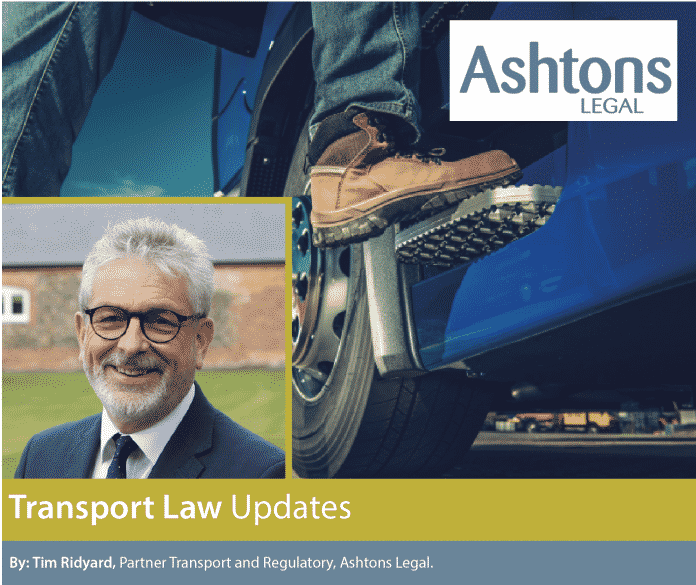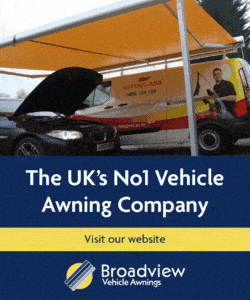A recent development is that of driver employment status and how this dovetails with operator licensing. This article centres on how the way a driver is engaged is relevant to operator licences and the view taken by Traffic Commissioners where drivers are said to be “self-employed”.
There has been increased focus on this area, following HMRC increasing its scrutiny of self-employment status and personal service companies from April 2021. Changes in the ‘IR35 rules’ have made it harder for self-employment status to be justified and has led to a large number of drivers leaving the sector. This has been one of many factors in the current driver shortage crisis. Part of the exodus of non-UK drivers has related to this.
Drivers will be engaged under contracts of employment, possible zero hours contracts, through driver agencies or through their own companies. These companies will be owned by a sole driver/director and supply driving services. They do not have their own operator’s licence. As these are limited companies, national insurance can be paid at a lower level and tax-free dividends can be paid to directors. In net terms, an employed driver may pay a higher part of gross income in tax/NI.
The HMRC view is that it will be rare for a driver to be self-employed. It is clearly set out in their guidance and policy. It is not impossible for a driver to be self-employed – there are some sectors where drivers drive but are not vocational drivers – but drivers engaged as vocational drivers will not normally not be able to regard themselves as self-employed. A business that fails to pay tax/NI may face HMRC action and payment of arrears.
So, how has this any bearing on operator licencing and why might Traffic Commissioners be embroiled in this area? After all, HMRC is concerned with tax/NI and why cannot any operator engage any driver in any way, so long as whatever tax/NI is due is duly paid?
In fact, Traffic Commissioners adopt the HMRC view and are concerned about issues of good repute and fair competition; they are also concerned about arrangements where drivers may not be controlled by the operator – after all, an operator, not the driver, directs operations under the licence.
The Bridgestep Case
In March 2020 the Upper Tribunal (that hears appeals from Traffic Commissioner Public Inquiry decisions) dealt with the case of Bridgestep Ltd and its Transport Manager. Ironically, the case originated from a railway bridge strike, an issue about which Traffic Commissioners are seriously concerned.
The driver involved in the bridge strike drove “in a self-employed capacity” and most of the company’s drivers were treated as self-employed. The Traffic Commissioner dealing with the original Public Inquiry explored the issue of the drivers’ self-employment status. The drivers had formed their own individual limited companies and contracts for service had been created. Oddly, the Transport Manager of the company did not feel the company had the power to tell self-employed drivers what routes to take but the Traffic Commissioner’s approach to this was that “the use of self-employed drivers was the wrong option bearing in mind day to day responsibilities of the committee to ensure that vehicles were deployed safely on the road”.
The TC also tackled the company about established HMRC advice about drivers of HGVs only qualifying for self-employed status in very limited circumstances.
In their evidence the company said it had been restricted from employing drivers because of the cost of National Insurance contributions and pension contributions. In his decision the Traffic Commissioner stated “The contracting of self-employed drivers, when their status was properly that of employee, was anti-competitive and prejudicial to fair competition in the industry. The payment of National Insurance contributions in respect of such drivers, and the requirement to enrol them in and contribute to pension schemes would be avoided as would the duty to plan for their statutory paid holiday entitlement”.
The Traffic Commissioner was also not impressed that drivers had been taken on as self-employed contractors, against HMRC advice but later had been prepared to accept a situation where, due to self-employed status, they could not control or direct the drivers which demonstrated, in his view, “a serious faulty or cavalier approach to business”.
Like all cases, this one has its own facts but the important conclusions to be drawn are:
In operator licensing Traffic Commissioners adapt and endorse the HMRC position on self-employed drivers i.e. they will rarely be self-employed unless they have their own operator’s licence or they fall into a group of drivers who can properly justify self-employment status.
Fair competition and a level playing field are issues of concern: engaging “self-employed” drivers who form their own limited companies means drivers engaged at lower overheads than should be the case. Some operators may be doing this deliberately for greater profit margin.
There is potential or actual conflict in relation to control of drivers and the operator’s licence. Some ‘contracts for services’ expressly state that the driver cannot be subject to instructions as to how to carry out work, that is at odds with the operator control required.
It is already the case that Traffic Commissioner investigate how drivers are employed. Any business employing self-employed drivers or drivers through their one companies need to re-assess this, in the light of this.
For further information please contact:
Tim Ridyard, Partner Transport and Regulatory T: 01284 732111 E: Tim.Ridyard@ashtonslegal.co.uk or visit: www.ashtonslegal.co.uk
Published in Essential Fleet Manager Issue 7 2021
Read it here https://issuu.com/jdmweb/docs/essential_fleet_manager_-issue_7?fr=sZWM0ZjQxNDIwNTE




